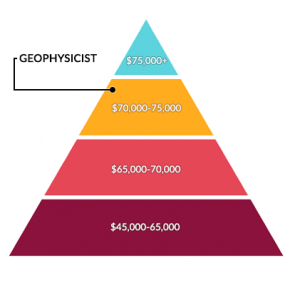All Categories
Featured
Table of Contents
Geophysical Surveys in Maylands Western Australia 2022

Other possible geophysicist majors that aren't geophysics or geoscience consist of: Atmospheric sciences and meteorology Chemical and physical oceanography Earth science Environmental science Hydrology and water resources science Materials science By earning any geophysicist degree, and by taking the required geology courses, you need to get approved for an entry-level position as a geoscientist or geophysicist.
Eventually, trainees must find out: a branch of geology that looks at the various aspects of minerals, including chemical structure, internal crystal structure, and physical homes. the study of rocks and the processes and conditions that form and transform them over time. There are a few neighborhoods in this branch of geology, including igneous, metamorphic, and sedimentary rocks.

This field takes a look at structural rock functions such as cleavage, faults, joints, and little folds. They should likewise discover the computer system skills necessary to: evaluate data produce digital models and maps operate geoscientists' software Trainees ought to likewise make the most of all opportunities to get real-world experience. Ambitious geophysicists ought to expect to invest time knowing: in the class in the field in labs Undoubtedly, abilities taught in the classroom are extremely crucial for striving geophysicists.
Geophysics in Bentley Western Australia 2023
Geoscientists spend a lot of their time outside when working in the field, so they should have "outdoor skills" like outdoor camping and operating boats, aircraft, and other automobiles. Due to the fact that they spend a lot time in remote locations, it's essential that geophysicists also have the physical endurance to carry essential devices on their walkings to places of research study.
The task uses: a high average and leading earnings a high rate of individual complete satisfaction among geophysicists low work tension favorable job outlook Additional info on earnings capacity and job outlook is detailed below. For trainees wanting to land an entry-level role as a geoscientist or geophysicist, it takes 4 years, or the time required to finish a bachelor's degree in geophysics or an associated discipline.
Some research positions in geophysics require postgraduate degrees. If you prepare to teach at a college or university, you must make a Ph. D. in geophysics or an associated field. The time it requires to make a Ph. D. differs by organization and program, however it generally takes 4 to 6 years beyond the bachelor's degree.
What Is The Best Degree Path For Becoming A Geophysicist? in Westminster Oz 2020
In truth, many companies need prospects to have a bachelor's degree in geophysics or a carefully associated discipline for all entry-level positions. And, sometimes, companies need a master's degree. As an outcome, there's no method around the degree requirements for ending up being a geophysicist. Most companies will expect or need a practicing geologist to be accredited for positions beyond those at the entry level.
Presently, 31 states require licensing for geologists, although licensing is not always required, particularly for entry-level work. The states that do issue licenses use the Principles of Geology Examination (FGE), which is administered through the National Association of State Boards of Geology (ASBOG). Now that you understand which degree for geophysicist jobs you need, you'll require to land a task, and it is very important to discover just how much cash you can make in this profession.
According to BLS, the average yearly wage for geoscientists is $93,580. According to BLS, specific industries offer greater earnings for geoscientists, and in some cases, they use higher-than-average incomes.
What Does A Geoscientist Do? in Wembley Western Australia 2021
In truth, mining, quarrying, and oil and gas extraction offers over $32,000 more every year than the average yearly wage for this profession. The federal government, too, provides over $10,000 more in incomes than the nationwide average for geoscientists. In addition to industry type, geographical location can considerably impact revenues for this profession.

The top-paying states and their yearly mean earnings, according to the BLS, include: Texas $166,720 Oklahoma $149,630 Pennsylvania $120,590 Hawaii $120,130 Colorado $107,260 These 5 top-paying states provide much higher earnings than the average for this profession. Incomes for geoscientists in Texas are over $73,000 greater than the nationwide average.
It must come as not a surprise that most of these high-paying locations are in Texas and Oklahoma, but some are discovered in California, Louisiana, and Colorado. The leading 10 highest-paying city areas for geoscientists are: Houston-The Woodlands-Sugar Land, Texas: $188,400 Tulsa, Oklahoma: $186,490 Midland, Texas: $167,040 Odessa, Texas: $147,080 Oklahoma City, Oklahoma: $145,350 Bakersfield, California: $130,080 Urban Honolulu, Hawaii: $124,470 New Orleans-Metairie, Louisiana: $121,030 Washington-Arlington-Alexandria, DC, VA, MD, WV: $120,180 Denver-Aurora-Lakewood, Colorado: $116,910 For some geoscientists and geophysicists, residing in a metro city is not as appealing as residing in a smaller community.
Table of Contents
Latest Posts
What Are Geophysical Surveys & Why Do They Matter in Parkwood WA 2023
Geophysical Methods in Merriwa Western Australia 2021
Geophysicist: Job Description, Duties And Requirements in Western Australia 2022
More
Latest Posts
What Are Geophysical Surveys & Why Do They Matter in Parkwood WA 2023
Geophysical Methods in Merriwa Western Australia 2021
Geophysicist: Job Description, Duties And Requirements in Western Australia 2022